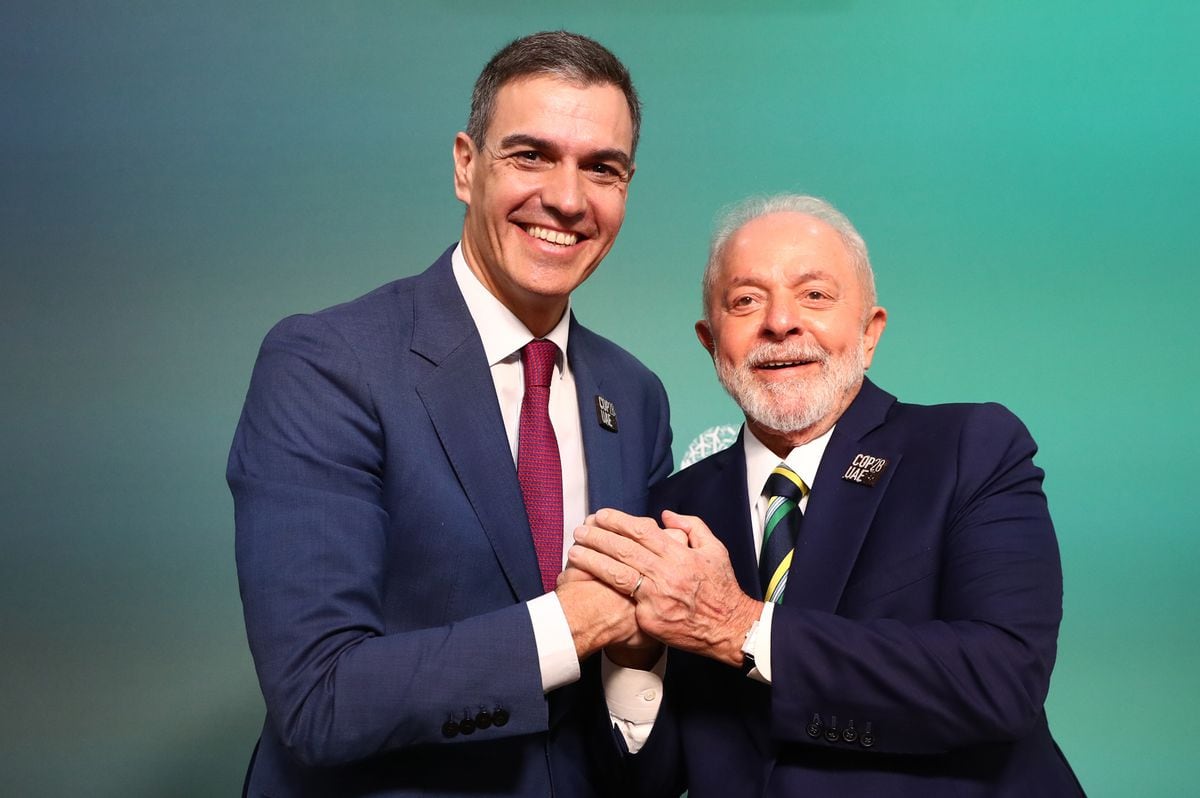Núria Vilanova, in a file image.Goyo Conde
Ibero-America is a concept in low hours.
Lately, what stands out from the Ibero-American summits are the absences of the main leaders of the region, more than the significance of what was discussed there.
Nor does Spain, the great promoter of the forums, display the expansive effervescence of the 1990s and early 2000s. However, Núria Vilanova (Vilanova i la Geltrú, 57 years old), president of the Business Council Alliance for Ibero-America (CEAPI) ), continues to believe in the importance of ties, at least economically.
"Companies build Ibero-America," she says in an interview with this newspaper via videoconference.
At the last Ibero-American Summit, held in Andorra in the midst of a pandemic, the family photo was reduced to eight personalities and only two were Latin American heads of state.
The background, mist-covered mountains, did not call for optimism.
Vilanova, who in addition to presiding over CEAPI is the founder of the communication company Atrevia, believes that the idea of Ibero-America does live in business.
“Politics is dividing into blocs.
Companies don't,” she says.
CEAPI, which includes 190 business leaders, has just organized its fifth congress in the Dominican Republic.
Spain remains the second largest investor in the region after the US, with an annual average of 12,000 million dollars, although China and other European countries have quickened the pace.
“Spain cannot lower its guard.
Ibero-America is going to have an increasingly strategic importance”, says Vilanova, referring to imports of raw materials and food.
On the other hand, business relations between both sides of the Atlantic have changed.
Before, Spain went shopping in Latin America.
Now, it's the other way around.
Latin American investment in Spain has grown by 92% in the last decade, according to a report by the Spanish government.
Spanish construction companies OHL and FCC, controlled by the Mexican brothers Amodio and Carlos Slim, respectively, are a good example.
Vilanova believes that Latin American investment in Spain will continue to grow.
“It always normally starts with the closest countries, but this dynamic spreads and the landing of companies from America has been very interesting.
They do not invest in Spain to stay there, but rather use it as a globalization platform”, he assures.
“Growing up in Ibero-America is what gives you the drive.
Spain has good marks to, from there, go to the world”.
While Latin American companies turn to Spain, in Latin America some of the Spanish multinationals that led the landing decades ago are now facing the erosion of their image.
In Peru, Repsol is involved in controversy after a ship dumped 11,900 barrels of crude oil in January when it was unloading at a refinery belonging to the multinational.
In Mexico, Iberdrola has just been fined by the Government with some 466 million dollars considering that it violated the law of the sector, a punishment that is being litigated in court.
"Mexico is no longer a land of conquest," Mexican President Andrés Manuel López Obrador has said on several occasions.
Despite these problems, Vilanova believes that Spanish companies have learned since his arrival several decades ago.
“40 years ago, things were different.
I know of cases in which they removed a manager who was perhaps not the person who understood the culture the most, but from then on it has been improving, ”he says.
“Now there is much more knowledge than before.
Mexico will not find a country that knows, values and respects it like Spain.
Mexican businessmen know it;
they are very conscious that they are received with open arms”.
In addition, the profile of Spanish companies has changed, says Vilanova.
“Many of the companies that began internationalization were
utilities
and provided a service that was considered public, such as electricity or telephony.
I believe that this could create a conflict that does not exist today because you can choose, for example, which telephone company you hire”, she says.
In any case, the businesswoman plays down the importance of the nationality of the companies: “There are fewer and fewer Spanish or Mexican companies.
We are already multi-Ibero-American companies”.
Regarding the relationship with governments, Núria Vilanova mentions a business "concern" with the region's shift to the left, exemplified by the election of progressive leader Gustavo Petro as the next president of Colombia.
“The composition of the Cabinets is going to be key, that there are people who understand how companies can be the best allies of social transformation.
Governments can be left-wing or right-wing;
what is key is that they understand the business world and know how to create bonds of dialogue and trust”, she assures.
“For a businessman to invest in a country, he needs to believe in it, to see that there is going to be legal certainty”.
subscribe here
to the
newsletter
of EL PAÍS México and receive all the informative keys of the current affairs of this country



/cloudfront-eu-central-1.images.arcpublishing.com/prisa/GZBJJXO3EZE2HLSP5ZRRKYYYOY.JPG)





